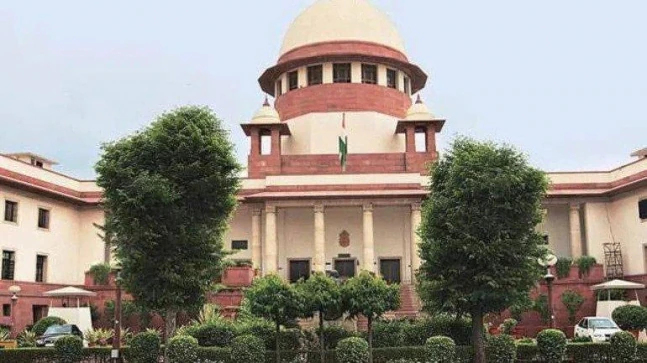
[ad_1]
The Supreme Court has asked the judicial system to discourage “burgeoning litigation” under the tender jurisdiction, especially in “vexatious and luxury litigation born out of ego or greed or as a buying time tactic in commercial matters.”
Mindless appeals should not be the rule, the court said.
A bench of Justices Sanjay Kishan Kaul and Hrishikesh Roy imposed over 30 lakh fine on two parties who challenged the tender process for hologram stickers to be pasted on liquor bottles for sale in Tamil Nadu State Marketing Corporation (TASMAC) shops.
The bench said, “The objective of creating what is commonly called tender jurisdiction was to have greater transparency and the consequent right of an aggrieved party to invoke the jurisdiction of the High Court. However, the ground reality today is that almost no tender remains unchallenged. Unsuccessful parties or parties not even participating in the tender seek to invoke the jurisdiction of the High Court under Article 226 of the Constitution”.
ALSO READ: Govt’s ‘oversight mechanism’ under IT rules will rob media of its independence: Madras HC
The bench also reiterated the observations made by courts earlier on the issue and stated, “It appears that the window (of tender jurisdiction) has been opened too wide, as almost every small and big tender is now sought to be challenged in writ proceedings almost as a matter of routine”.
In its decision, the bench noted, “In commercial tender matters, there is obviously an aspect of commercial competitiveness. For every succeeding party who gets a tender, a couple or more parties may not be awarded the tender as there can be only one L-1. The question is: should the judicial process be resorted to for downplaying the freedom which a tendering party has, merely because it is a State or a public authority, making the said process even more cumbersome?”
The original petitioners had claimed that the criteria set by the administration for the tender ruled out the majority of the participation, to the extent that only three companies were eligible to make a bid. The companies stated that the technical requirements to create the hologram stickers were too stringent. Interestingly, the Tamil Nadu Government argued before the Supreme Court that the conditions had been put in place with the public interest as the threshold since these stickers that cannot easily be copied would prevent spurious liquor from being pushed in the market.
ALSO READ: NCLAT acting chairman moves SC against order to remove him from Tribunal
The bench accepted this stand of the State and said, “It is a well-known fact that a large revenue collection comes in Tamil Nadu through the sale of liquor. It thus must be left to the State Government to see how best to maximize its revenue and what is the technology to be utilized to prevent situations like spurious liquor, which in turn would impede revenue collection, apart from causing damage to the consumers.”
The bench also made some crucial observations on the imposition of costs in commercial matters. “There seems to be often a hesitancy in our judicial system to impose costs, presuming as if it is a reflection on the counsel. This is not the correct approach. In a tussle for enforcement of rights against a State, different principles apply, but in commercial matters, costs must follow the cause,” the judgment authored by Justice Kaul read.
The bench noted that there must be an appreciation of the principle that in carrying on commercial litigation, parties must weigh the commercial interests, including the consequences of the matter not receiving favourable consideration by the courts. Mindless appeals should not be the rule. Accordingly, the bench imposed 30 lakh costs on both parties.
ALSO READ: ‘Cherry-picking’: Supreme Court warns Centre of contempt case over tribunal appointments
[ad_2]